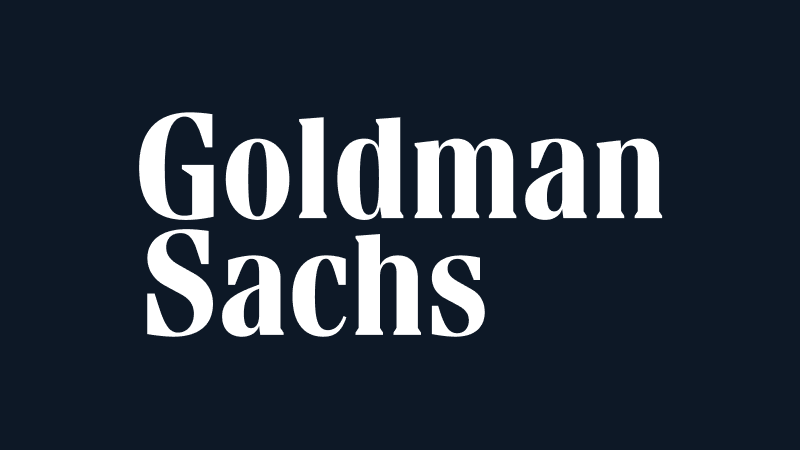Reinsurance – Defensive, with a cycle hardening tailwind: Goldman Sachs

Equity analysts from investment bank Goldman Sachs have, perhaps unwittingly, laid out a thesis for insurance-linked securities (ILS) investing in their latest research report on the global reinsurance market, which they laud for its defensive investment properties and note has very positive tailwinds at this time.
The analysts are commenting on the prospects for the large European reinsurance giants, at the current stage of the market and economic cycle.
But their arguments as to why reinsurers should be attractive investment opportunities right now reads-across particularly positively for insurance-linked securities (ILS) as well.
Ultimately, the Goldman Sachs thesis behind reinsurance is that major European reinsurers are well-placed to benefit not only from the current tailwind of the reinsurance pricing cycle, but also from increased demand for reinsurance protection from climate change.
On top of this, the Goldman Sachs analysts believed that concerns around inflation and higher weather losses would serve to maintain upward pressure on pricing in reinsurance as well.
With some issues related to inflation, weather losses, the conflict between Russia and Ukraine, and COVID related losses, all falling further into the rear-view mirror for many reinsurers, the analysts are even more constructive than they were on reinsurance a couple of months ago.
One notable point of view from this analyst team, is that they prefer the reinsurance names that have not opted to pull-back on property catastrophe risk at this time.
They highlight that “pricing is getting more attractive and companies are starting to get paid for the risk” and so favour reinsurers that are demonstrating their ability to take advantage of this hard market.
In addition, the Goldman Sachs equity analyst team believe that reinsurance is set to regain its historical defensiveness.
“Reinsurers have historically been defensive in times of uncertainty, with uncorrelated market risk (i.e. low betas), conservative investment portfolios and strong solvency positions. We believe the sector, trading materially below its peak multiples, even in the midst of a hard (improving) market for both insurance and reinsurance, looks attractive, and that these stocks could regain their historical defensiveness,” they explain.
“In our view, reinsurance is a relatively more robust investment in the current environment,” the analysts state.
Adding that, “Reinsurers’ risks (e.g. nat cat risk) are typically uncorrelated with broader market risk.”
This defensive appeal of reinsurance is, of course, one of the key attractions to insurance-linked securities (ILS) for global institutional investors.
At a time when capital markets, equities and other asset classes appear more volatile, the fact reinsurance looks increasingly defensive should serve to drive more investors to look at ILS.
If reinsurance equities are seen as defensive, then investments directly into the economics of reinsurance transactions should be particularly appealing at this time.
The analysts still want to see the evidence of the hard market conditions earning through, saying this has yet to happen.
The same goes for ILS, which investors are now looking at to demonstrate how higher pricing, tighter terms and improved floating risk-free rate potential will pay off in their favour over the coming months.
Finally, the analysts from Goldman Sachs also don’t find inflation or interest rates a major threat for the reinsurance sector.
In fact, they largely see insurers and reinsurers as normally being positively correlated to inflation and interest rates.
Saying that, “We view inflation as a medium-term tailwind for companies, driving incremental top-line growth and prolonging the hard market. Higher interest rates, while a short-term headwind, can be economically beneficial as they both enhance the solvency position and increase future investment income as reinvestment yield is higher.”
This also reads-across positively to the ILS market, given ILS funds and investments will also benefit from the tailwind of inflation as they can reprice contracts on an annual basis, or adjust contract performance terms such as in a catastrophe bond reset, meaning inflation assumptions can be incorporated.
In addition, the ILS market benefits from a rising floating-rate of return from the collateral underpinning its reinsurance contracts and ILS instruments, lifting the risk-free return component of ILS at a time when the risk-linked return element is also rising.
With reinsurance pricing forecast to continue rising into 2023 renewals by many analysts, rating agencies and observers, while inflationary effects are almost certainly still rising at this time, plus interest rates look set to increase further as well, all against a backdrop of harder market conditions where capacity has more control over the terms and conditions it is deployed under, the outlook looks bright for insurance-linked securities (ILS) as well.
We’d add that the risk-adverse nature of some reinsurers, in their pulling-back on catastrophe risks and concerns over climate change, could present additional opportunities for ILS funds and investors too.
Those more risk-adverse need retrocessional capacity to help them manage their exposures, while also being increasingly keen to partner with capital that has an appetite for cat risk still.
This and the fact traditional reinsurance capital for nat cat risks may be declining a little at this time, all suggests ILS markets may move towards a real opportunity for some additional growth at the next renewals, while segments like the catastrophe bond market could benefit and find incremental opportunities to add volumes as well.
——————————————————————— Tickets are selling fast for Artemis London 2022, our first ILS conference in London. Sept 6th, 2022.
Tickets are selling fast for Artemis London 2022, our first ILS conference in London. Sept 6th, 2022.
Register soon to ensure you can attend.
Secure your place at the event here!
—————————————






